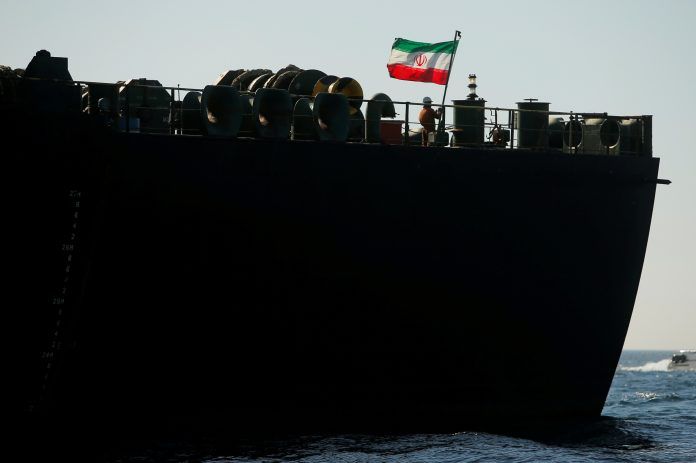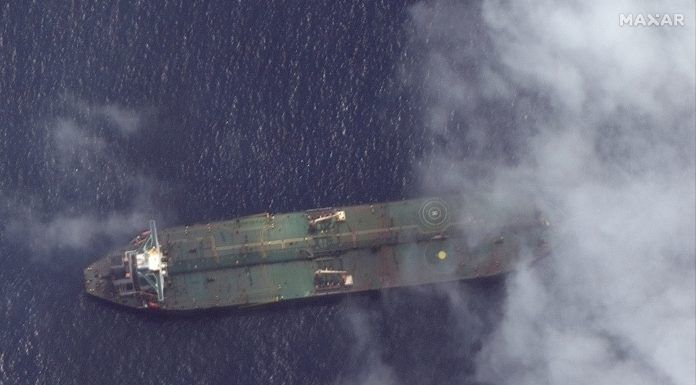LONDON, Sept 10 (Reuters) – Britain’s foreign minister on Tuesday said Iranian tanker Adrian Darya had sold its crude oil to the Assad regime in Syria, breaking assurances it had given not to sell crude to the country.
The vessel, formerly named Grace 1, was seized by British Royal Marine commandos on July 4 on suspicion of being en route to Syria.
Gibraltar released it on Aug. 15 after receiving formal written assurances from Tehran that the ship would not discharge its 2.1 million barrels of oil in Syria.
But Britain’s foreign office said in a statement it was clear Iran had breached those assurances and that the oil had been transferred to Syria.
“Iran has shown complete disregard for its own assurances over Adrian Darya 1,” foreign minister Dominic Raab said in the statement.
“This sale of oil to (Syrian President Bashar al-Assad’s) brutal regime is part of a pattern of behaviour by the Government of Iran designed to disrupt regional security.”
The Trump administration last year unilaterally pulled out of a 2015 nuclear deal between Tehran and Western powers, and is pursuing a campaign to bring Iran‘s exports to zero.
Washington had warned any state against assisting the ship, saying it would consider that support for a terrorist organization, namely, Iran’s Islamic Revolutionary Guard Corps.
The U.S. State Department on Tuesday stopped short of confirming whether Iran had sold the oil to Assad’s regime, but strongly suggested it had.
“As we have warned all along, the Iranian regime has once again reneged on its assurances to the international community about its intentions to transport illicit oil to the murderous Assad regime,” a department spokeswoman said.
Brian Hook, the State Department’s top official on Iran, sent emails to the Adrian Darya’s captain on Aug. 26, saying the Trump administration was offering him several million dollars to steer the tanker to a country that would impound it on behalf of Washington, a department spokesman confirmed. The emails to the captain, first reported by the Financial Times, were among about a dozen similar communications Hook had with other captains in recent months.
Britain said it had summoned the Iranian ambassador to condemn Iran’s actions and would raise the issue at the United Nations later this month.
“Iran’s actions represent an unacceptable violation of international norms,” the statement said.
(Reporting by William James, additional reporting by Timothy Gardner in Washington; editing by Elizabeth Piper and Tom Brown)



